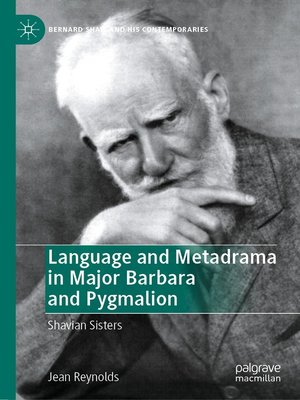Language and Metadrama in Major Barbara and Pygmalion
ebook ∣ Shavian Sisters · Bernard Shaw and His Contemporaries
By Jean Reynolds

Sign up to save your library
With an OverDrive account, you can save your favorite libraries for at-a-glance information about availability. Find out more about OverDrive accounts.
Find this title in Libby, the library reading app by OverDrive.



Search for a digital library with this title
Title found at these libraries:
| Library Name | Distance |
|---|---|
| Loading... |
This book focuses on two important topics in Shaw's Major Barbara and Pygmalion that have received little attention from critics: language and metadrama. If we look beyond the social, political, and economic issues that Shaw explored in these two plays, we discover that the stories of the two "Shavian sisters"— Barbara Undershaft and Eliza Doolittle—are deeply concerned with performance and what Jacques Derrida calls "the problem of language." Nearly every character in Major Barbara produces, directs, or acts in at least one miniature play. In Pygmalion, Henry Higgins is Eliza's acting coach and phonetics teacher, as well as the star of an impromptu, open-air phonetics show. The language content in these two plays is just as intriguing. Did Eliza Doolittle have to learn Standard English to become a complete human being? Should we worry about the bad grammar we hear at Barbara Undershaft's Salvation Army shelter? Is English losing its precision and purity?Meanwhile, in the background, Shaw keeps reminding us that language and theatre are always present in our everyday lives—sometimes serving as stabilizing forces, and sometimes working to undo them.







